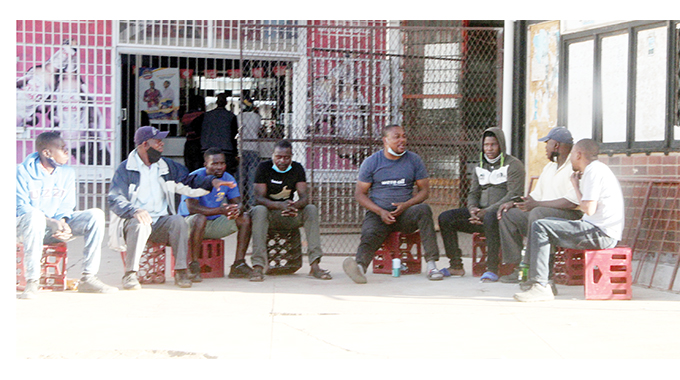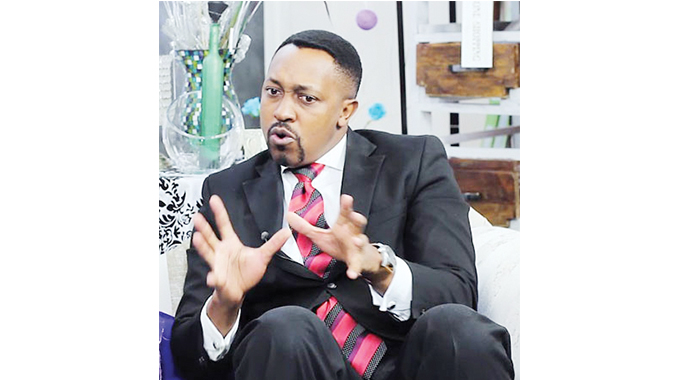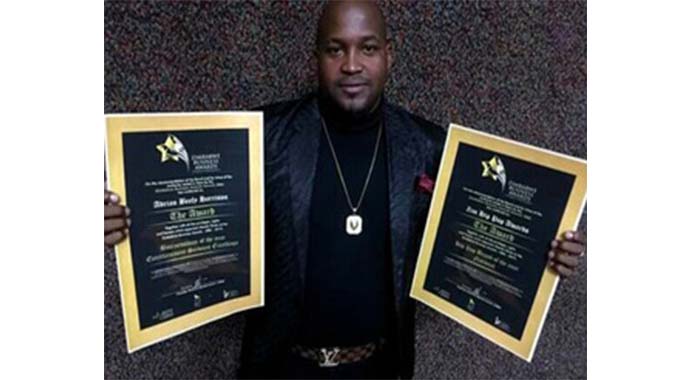WATCH: Bulawayo lockdown looms

Mashudu Netsianda and Nqobile Tshili, Chronicle Reporters
GOVERNMENT might be forced to consider strict localised lockdown for Bulawayo as residents continue to flout Covid-19 prevention measures at a time health experts have warned of an imminent Covid-19 third wave.
The city is witnessing a spike in new cases and some of the suburbs have already been declared hotspots.

It was business as usual at Sekusile Shopping Centre in Nkulumane suburb, Bulawayo yesterday as residents went about their businesses.
According to the Ministry of Health and Child Care’s daily Covid-19 report Nkulumane, Emakhandeni and the city’s northern suburbs have been identified as hotspots. Masvingo and Chiredzi districts have been classified as Covid-19 hotspots too. Kwekwe, Kariba and Karoi have already been put under localised lockdown.
Kwekwe city was put on localised lockdown after an Indian variant was detected in the city which was also witnessing a surge in new Covid-19 cases.
Last week Cabinet approved that the Kwekwe localised lockdown be extended by a further two weeks.
In interviews yesterday, Bulawayo health experts warned that complacency by residents could lead to a fully-fledged Covid-19 third wave in the city.
Bulawayo City Council (BCC) health services director Dr Edwin Sibanda said the city is divided into three clinical districts, Nkulumane, Emakhandeni and northern suburbs.
He said suburbs covered by the Nkulumane clinical district, include Nkulumane, Pelandaba, Sizinda, Nketa, Emganwini and Barham Green.
Emakhandeni clinical district covers Cowdray Park, Njube, Luveve, Magwegwe suburbs, Pumula suburbs and Emakhandeni.
Dr Sibanda said the northern suburbs include Mpopoma, Mzilikazi, Nguboyenja, Makokoba and city centre.
He said since the city is already in the Covid-19 third wave, health authorities might be forced to impose strict localised lockdown due to non-adherence to health protocols by residents.
Cabinet on Tuesday blamed complacency for contributing to the rise in Covid-19 infections.
“There is that danger that the whole city could be placed under a localised lockdown. It is almost impossible to have a localised lockdown targeting a suburb because you can have someone living in an area that has been classified as a hotspot but working in the city centre. So, it won’t be feasible to have a lockdown targeting a suburb,” he said.
Dr Sibanda said the winter season is synonymous with most influenzas and urged members of the public to exercise extra caution as the season is also a breeding ground for viruses that include the deadly Covid-19.
“The winter period is associated with the increase in influenza illnesses and Covid-19 is a severe form of flu. During this period, there is less opening of windows in public transport, people are not maintaining social distancing as they will be trying to be warm and all these factors can contribute to an increase in new Covid-19 infections,” he said.
Dr Sibanda said to prevent a spike in Covid-19 cases members of the public should adhere to prevention measures which include social distancing, regular hand sanitisation, proper wearing of mask and they should be vaccinated.
Bulawayo consultant paediatrician Dr Wedu Ndebele said due to a localised spread more people were likely to get infected if they do no take preventive measures.
“If you have a hotspot within a city, it means the virus can easily spread and the next person that you meet could actually be having it hence people must make sure they don’t let off their guard. We should make sure we mask up, wash hands and maintain social distancing,” he said.
“The situation can easily flare up into a full-fledged third wave because we are having localised spread. People have become complacent and what is worsening the situation is that we are in winter when the virus spreads very fast.”
Dr Ndebele urged residents to be alert at their workplaces, in public transport and other public spaces such as supermarkets.
“We mustn’t be complacent because our neighbouring countries are already grappling with the third wave and therefore the probability of us experiencing the same is very high,” he said
Bulawayo Provincial Affairs Minister Judith Ncube expressed concern over the level of complacency in the city, which she blamed for a spike in Covid-19 cases.

Cde Judith Ncube
“Our people are not following health protocols and we are therefore, urging the provincial taskforce committee to consider a localised lockdown to avert a health disaster. There is a revised lockdown which has banned public gatherings, which are super spreaders and it is prudent for citizens to follow those regulations,” she said.
“Let us maintain social distancing, wear face masks in public places and regular washing of hands is important. I had an opportunity to move around the city and I noticed that people are careless as they are defying health protocols especially in shops.”
Minister Ncube said supermarkets should consider limiting the number of shoppers entering their premises.
“It is high time shops allow a limited number of people inside at any given time to avoid crowding because the situation is terrible and if we are not careful, we are likely to find ourselves in a serious health crisis,” she said.
Some residents who spoke to the Chronicle yesterday, appeared unfazed about the latest development.
The chairperson of the Nkulumane Vendors Association, Mr Mphilisi Ndlovu said: “We are just hearing it in the media that we are a hotspot but we are not seeing signs of people infected with Covid-19.”

Mr Mphilisi Ndlovu
Mr Jonathan Ngwenya said they were wary of a possibility of a health crisis.
“We are now living in fear following the declaration of our suburb as a hotspot. Government should intensify awareness campaigns because it appears there is complacency and people are not aware of the effects of Covid-19 and what it means to be a hotspot,” he said.
Mrs Margaret Zulu who operates at Sekusile Flea Market in Nkulumane said although the suburb was declared a hotspot, she was yet to witness cases of people infected with the virus.
Mrs Zulu, however, said she was adhering to the health protocols.
Vice-President and Health and Child Care Minister Constantino Chiwenga announced new lockdown regulations which came into effect on Monday. Under the new regulations, all gatherings except funerals are banned. Companies have been directed to decongest their staff by 50 percent while workshops have been banned.
The new measures also stipulate that restaurants can only serve takeaways.
Beer halls and nightclubs remain closed while bottle stores will operate from 10am to 4pm with retailers and shops operating from 8AM to 6PM. — @nqotshili @mashnets.











Comments